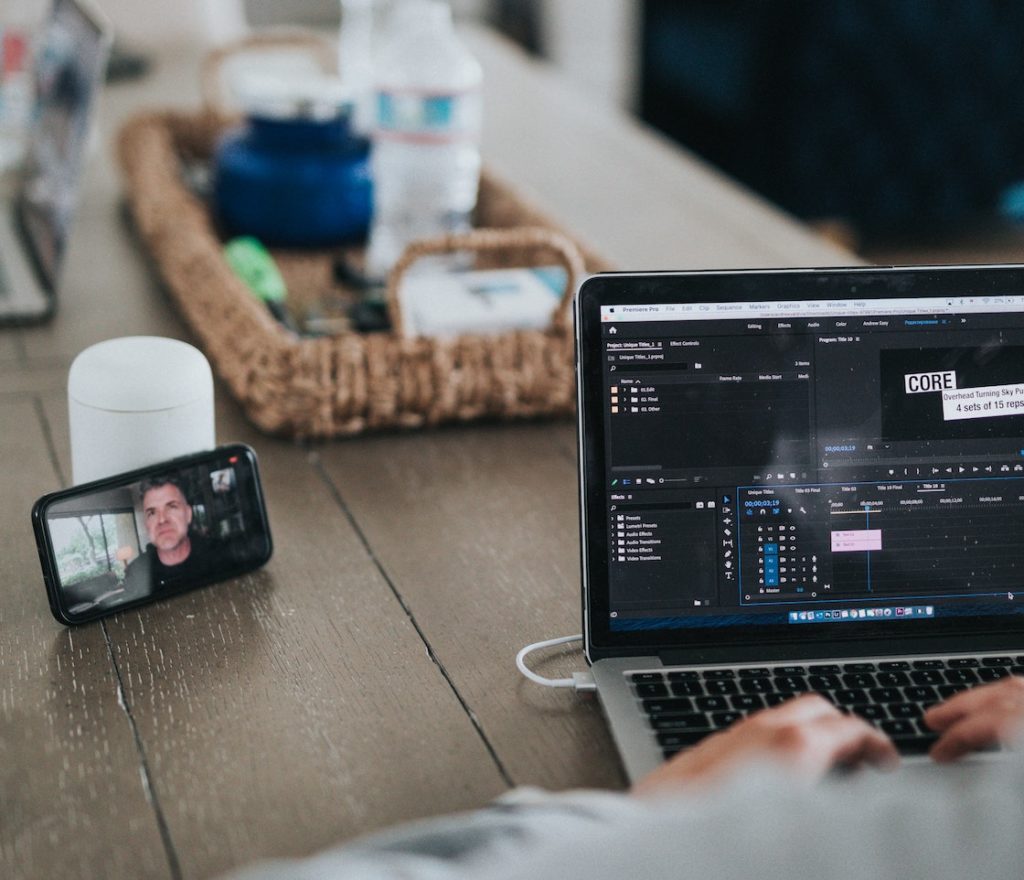4 Min Read
‘Zoom Fatigue’ Is Real – Here’s How to Avoid It
In the United States, the Centers for Disease Control (CDC) has encouraged businesses to practice social distancing and avoid close contact due to the COVID-19 pandemic. Consequently, our time spent on Zoom calls has increased significantly. As a previous alternative to face-to-face meetings, Zoom meetings, and other similar video conferencing software have become a tool used by healthcare providers, remote workers, and family members to replace in-person meetings.
According to the New York Times, remote work can significantly benefit individuals with pre-existing health conditions, including heart disease and mental health conditions, by reducing risk factors for COVID-19. However, for some people, adjusting to a different way of working has made work more challenging.
If you’re feeling exhausted at the end of your workday, you’re not alone. Over the past month, mentions of “Zoom fatigue” have become more and more prevalent on social media, and Google searches for the same phrase have steadily increased since March.
“Zoom fatigue” stems from how we process information over a video call. The only way to show we’re paying attention is to look at the camera on a video call. Our brains have to work harder to pick up on cues we would typically have during a real-life conversation, like facial expressions, body language and behaviors, and details in our peripheral vision. Without the usual visual breaks we require to stay focused, our brains and bodies grow tired.
If you’re suffering from “Zoom fatigue,” don’t worry. Here are five ways to make video calls less exhausting.

Avoid Multitasking When on Video Calls
While it can be tempting to use the opportunity to video chat to do more work in less time, research suggests that multitasking cuts into performance. Because you have to shut parts of your brain off and on for different types of work, multitasking can cost you as much as 40 percent of your productivity. In a recent study, researchers at Stanford found that people who multitasked couldn’t remember things as well as their colleagues.
To avoid multitasking during work hours, close any tabs or programs that might be distracting during your next video call. It’s also helpful to turn notifications off, put away any mobile devices, encourage family members to stay in another room and make an effort to remain present. Although it might feel challenging to stay focused, remember the email you just got can wait 10 minutes, and you’ll be able to write a better response when you’re not on a video call.
Take Breaks From Zoom Meetings
Aim to take mini-breaks during video conferences by minimizing the Zoom window, moving it behind your other applications, using speaker view, or glancing away from your screen for a few seconds. We’re all more used to being on video now, and your team members will probably understand the need to give your eyes a break.
Keep in mind that looking away isn’t an opportunity to do something else. Instead, mini-breaks let your eyes rest from the blue light for a few seconds. If you can’t avoid back-to-back video calls, consider scheduling shorter meetings to reduce eye strain, minimize screen time, and move around between calls.

Find a Therapist to Help Avoid Zoom Fatigue
Get personalized matchesReduce On-Screen Stimuli When Video Conferencing
When we’re on Zoom calls, we not only focus on other people’s faces but also their backgrounds. If you’re on a video call with multiple people, it’s normal to feel overwhelmed, as the brain has to process various visual environmental cues at the same time.
To combat mental fatigue, encourage your colleagues to use plain backgrounds, or consider asking your group to have everyone who is not talking turn off their video.
Switch to Phone Calls Instead of Zoom Meetings
Check your calendar for the next week to see if there are any Zoom meetings you can reschedule over Slack, email, or phone call. If the middle of the workday rolls around and you’re feeling exhausted from Zoom calls, ask your team members to switch to a phone call or suggest picking up the conversation later to allow you to recharge.
Reach Out for Support
Whether you’re a travel agent working from your kitchen table or a data entry clerk working from your home office, you may feel daunted by adapting to the “new normal” and the uncertain future of work. It’s normal to feel fatigued or stressed when faced with a new work environment.
Video conferences can also be emotionally exhausting. According to a study of student-teacher interaction, during oral exams conducted through a video link, students with a higher risk of anxiety disorder felt more heightened anxiety than during a face-to-face exam. Consequently, they tended to perform worse in test results.
Video conferences force us to see ourselves mirrored back at us, which can make us feel more self-conscious and less confident in our Zoom interactions. Zoom meetings can also trigger a desperate need for recognition, and remote workers often feel the need to work harder, causing them to sacrifice their work-life balance.
If you’re suffering from “Zoom fatigue” during your workday or struggling to transition to remote work, consider reaching out to a therapist through WithTherapy. We know that it can be challenging to put out your best work when faced with stress and fatigue. Our unique service will match you with a mental health professional that you feel comfortable with, regardless of your personal preferences and requirements.
A robust support system is valuable to your mental health and physical health, especially under acute stress, like the current coronavirus outbreak. Meeting with a clinical psychologist, social worker, or other licensed mental health provider can help determine a treatment plan for your mental well-being during the novel coronavirus pandemic. Although the transition to online therapy may seem daunting, one of the experienced mental health providers at WithTherapy can help you learn to reduce fatigue and feel more comfortable during video calls.
Find a Therapist to Help Avoid Zoom Fatigue




